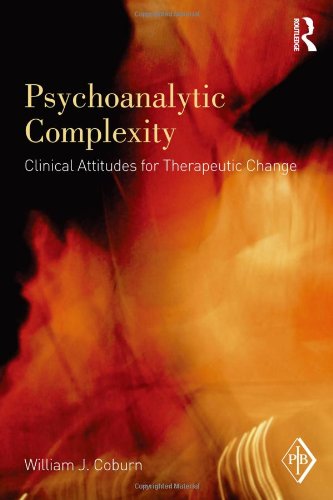

Most ebook files are in PDF format, so you can easily read them using various software such as Foxit Reader or directly on the Google Chrome browser.
Some ebook files are released by publishers in other formats such as .awz, .mobi, .epub, .fb2, etc. You may need to install specific software to read these formats on mobile/PC, such as Calibre.
Please read the tutorial at this link: https://ebookbell.com/faq
We offer FREE conversion to the popular formats you request; however, this may take some time. Therefore, right after payment, please email us, and we will try to provide the service as quickly as possible.
For some exceptional file formats or broken links (if any), please refrain from opening any disputes. Instead, email us first, and we will try to assist within a maximum of 6 hours.
EbookBell Team

0.0
0 reviewsPsychoanalytic Complexity is the application of a multidisciplinary, explanatory theory to clinical psychoanalysis and psychotherapy. It carries with it incisive and pivotal attitudes that aim to transform our understanding of therapeutic action and the change process. Here, William Coburn offers a revolutionary and far-reaching counterpoint to the remnants of Cartesianism and scientism, respecting and encouraging human anomaly rather than pathologizing or obliterating the uniqueness of the individual person.
In Psychoanaltyic Complexity, William Coburn explores the value of complexity theory previously understood as an explanatory framework with which clinicians can better understand, retrospectively, therapeutic action and the change process. He further extends this sensibility by examining the ways in which such a rich theoretical framework can inform what clinicians can do, prospectively, to effect positive change within the therapeutic relationship. He persuasively argues that the medium of bringing to light new ways of relating, emotional experiencing, and meaning making resides in the fundamental attitudes derived from a complexity theory sensibility as applied to psychoanalysis and psychotherapy.
Using a variety of clinical illustrations throughout, Psychoanalytic Complexity is a radical corrective to reductionism and the more traditional presumption that the problem lies with the patient and the cure lies with the therapist. It offers a new language, vocabulary, way of thinking, and a new way of being with others that are pivotal in arriving at affirmative therapeutic change. This book is intended for psychoanalysts, clinical psychologists, therapists, mental health counsellors, academics and teachers who are interested in new trends in psychoanalysis and psychotherapy.